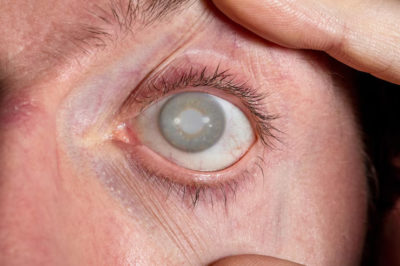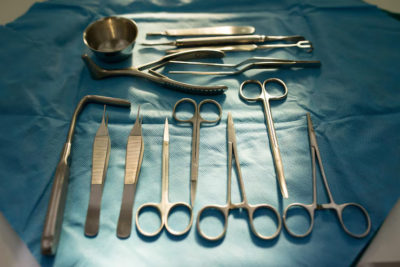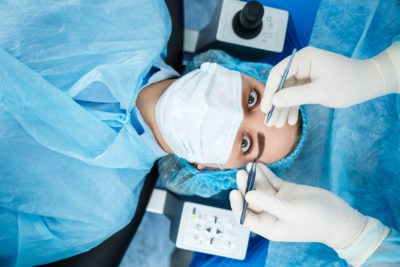Rohit was diagnosed with glaucoma at a young age of 41 years. He was lucky that he got diagnosed with Glaucoma at a very early stage of the disease. It got diagnosed on his regular eye check-up and he didn’t really have any eye related problems at that stage. He was surprised but subsequently he was very diligent about managing it. He used his eye drops and got his regular glaucoma testing done. Over the years he was moved from one to 3 glaucoma eye drops to keep the eye pressure under control. In his 60’s he developed a cataract and so he considered getting it operated for a better vision. He discussed with his glaucoma specialist various options for him. His glaucoma specialist advised him combined cataract and glaucoma surgery to reduce his dependence on multiple glaucoma medications. Additionally, he was advised to defer implantation of multifocal lens for a better visual outcome. Rohit underwent the combined procedure sequentially in both the eyes and was very glad about the results. He no longer needed to use eye drops for glaucoma and he got a clear vision
Patients with both cataracts and glaucoma require special consideration. Cataracts may naturally coexist with glaucoma, have a causative effect on glaucoma, and/or may even be a result of previous glaucoma surgery.
A cataract is a clouding of the lens inside the eye which leads to a decrease in vision. When a patient has glaucoma that requires an operation, there may be a unique opportunity to remove the coexisting cataract without significantly increasing the risk of the glaucoma surgery.
Additionally, when a patient has cataracts affecting their vision along with glaucoma, removing the cataract may provide an opportunity to perform a glaucoma surgery at the same time that may decrease the patient’s need for glaucoma eye drops or improve eye pressure control.
Cataract surgery may be combined with one of several glaucoma surgeries including trabeculectomy, glaucoma drainage devices.
Cataract Surgery Alone
In certain situations, cataract surgery alone may also be considered. For example, in some patients with narrow angles, the cataract becomes too big and crowds the other structures in the eye (especially the drainage angle). When this occurs, performing a cataract surgery with a lens replacement may open the drainage angle and improve the eye pressure.
For patients with mild glaucoma that is stable we might consider surgically removing the cataract and treating the glaucoma with pressure-lowering medications or laser treatments. Cataract surgery alone on an eye with glaucoma will sometimes lower the pressure in the eye.
Combined Cataract and Glaucoma Surgery
For patients with more serious glaucoma and the need for cataract surgery, a combination cataract removal and glaucoma filtering procedure can be considered. For patients using multiple anti-glaucoma medications, a combination procedure such as this would be appropriate.
glaucoma-cataract
Combination procedures, however, are not for everyone. The decision to perform a combination procedure depends on the number of anti-glaucoma medications used, how mature the cataract is, and the state of the glaucoma.
The decision of whether or not combined cataract-glaucoma surgery should be performed, and the choice of glaucoma surgery, depends on various factors including the type of glaucoma and its severity. Your glaucoma specialist will take all these important factors into consideration when advising what is best for your eye.
Cataract surgery in a patient with glaucoma may give rise to unique concerns. For example, in patients with exfoliation glaucoma there is a higher risk of complications due to inherent weakness in the supportive structure of the natural lens (the zonules).
Some newer types of intraocular lenses (Multifocal / Trifocal) may not be suitable for patients with advanced glaucoma because they affect contrast sensitivity (the ability to distinguish between an object and its background) or may cause additional sensitivity to glare.
To conclude, in patients with coexisting cataract and glaucoma, surgical treatment poses unique challenges. There are several treatment options and many variables factor into the decision to choose a particular procedure. A detailed discussion with your eye doctor is important in order to determine the best option for you.










